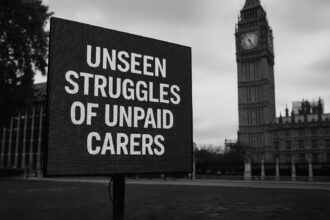Gwyneth Paltrow’s anecdote about the creation of the ‘This Smells Like My Vagina’ candle, recently shared at the 2025 Mindvalley Manifesting Summit, has reignited scepticism about her true involvement in Goop and the authenticity of celebrity-led wellness brands. While the candle’s swift success underlines the power of celebrity marketing, critics argue the narrative may be more of a calculated PR stunt than a genuine entrepreneurial story.
Gwyneth Paltrow has carved out a niche that leverages her celebrity status to front her wellness brand, Goop. Since its inception in September 2008, Goop has transformed from a lifestyle blog into a multi-faceted enterprise encompassing e-commerce, wellness products, and even a Netflix series, “The Goop Lab.” Recently, Paltrow has been in the spotlight once again, particularly for her notorious product, the ‘This Smells Like My Vagina’ candle, which has drawn both admiration and scepticism about the extent of her involvement in the company.
At the 2025 Mindvalley Manifesting Summit, Paltrow recounted the origins of the candle, which first launched in 2020. During a scent-testing session with perfumer Douglas Little, she jokingly remarked that one particular fragrance smelled like her vagina. According to Paltrow, the comment was made in jest, and she was surprised to find that this whimsical notion had manifested into an actual product on her website without her knowledge. “What a punk-rock, feminist statement to have that on your table,” Paltrow remarked when discussing the significance of the candle during a previous interview. It sold out immediately, a testament to the brand’s ability to capture public interest, but also raising eyebrows about Paltrow’s narrative.
However, the backstory has elicited mixed reactions, with increasingly sceptical fans scrutinising the authenticity of her claims. Many are questioning just how involved Paltrow truly is in Goop’s daily functions. Online discussions and social media threads have seen users suspecting that the entire genesis of the candle might have been more orchestrated than spontaneous. One Reddit user encapsulated the sentiment by suggesting, “It is possible she has little to do with the day-to-day running of the business,” hinting at the idea that celebrity brands often rely on established professionals who handle operations behind the scenes.
This suspicion is supported by a broader conversation regarding the authenticity of celebrity wellness products. News outlets like The New York Times and BBC have explored the ramifications of such branding efforts. Paltrow’s approach—mixing humour with marketing—has drawn scrutiny not just for the product itself, but for what it says about celebrity culture and its influence on consumer choices. The immediate sell-out of the $75 candle appears calculated to harness the buzz surrounding its cheeky premise, leading some to contend that Paltrow’s narrative might serve as an exciting PR stunt rather than a reflection of her personal brand philosophy.
Critics of the candle’s origin story argue that while it might resonate as a feminist statement, it ultimately raises questions about the sincerity of celebrity-driven ventures in the wellness space. As another online commentator pointed out, “These fake PR stories undermine genuine narratives in entrepreneurship.” Yet the candle’s rapid success also illustrates the potent intersection of celebrity culture, humour, and consumerism, indicating that even amidst doubt, Goop continues to wield considerable influence.
While Paltrow’s anecdotes elicit laughter and applause, they also invite scepticism, challenging the authenticity of her entrepreneurial claims. As Goop continues to evolve, the line between genuine engagement with her brand and the curated narratives crafted for public consumption becomes increasingly blurred, leaving fans to ponder the true essence behind the playful marketing.
Reference Map
- (1), (2), (4), (5)
- (1), (3), (6)
- (1), (5), (6)
- (1), (2), (5), (7)
- (2), (3), (4), (6)
- (1), (2), (4), (5)
- (2), (3), (5), (6)
Source: Noah Wire Services
- https://www.dailymail.co.uk/femail/article-14728803/gwyneth-paltrow-actress-goop-vagina-candle.html?ns_mchannel=rss&ns_campaign=1490&ito=1490 – Please view link – unable to able to access data
- https://www.dailymail.co.uk/femail/article-14728803/gwyneth-paltrow-actress-goop-vagina-candle.html?ns_mchannel=rss&ns_campaign=1490&ito=1490 – Gwyneth Paltrow, founder of Goop, discussed the origins of the ‘This Smells Like My Vagina’ candle at the 2025 Mindvalley Manifesting Summit. She recounted a playful moment with perfumer Douglas Little, where she jokingly remarked that a scent smelled like her vagina. The candle, initially a joke, was released without her prior knowledge and sold out immediately upon its 2020 launch. This incident has led fans to question Paltrow’s level of involvement in Goop’s daily operations, with some speculating that the story may have been a PR stunt.
- https://www.vogue.com/article/gwyneth-paltrow-goop-vagina-candle-origin-story – In an interview with Vogue, Gwyneth Paltrow shared the backstory of Goop’s ‘This Smells Like My Vagina’ candle. She explained that during a scent-testing session with perfumer Douglas Little, she jokingly commented that one fragrance smelled like her vagina. The playful remark led to the creation of the candle, which was released in 2020 and quickly sold out. Paltrow emphasized the feminist statement behind the product, highlighting its punk-rock appeal.
- https://www.nytimes.com/2020/01/15/style/gwyneth-paltrow-vagina-candle.html – The New York Times reported on the launch of Goop’s ‘This Smells Like My Vagina’ candle, detailing its unexpected success. The candle, priced at $75, was created after Gwyneth Paltrow’s humorous comment during a scent-testing session with perfumer Douglas Little. Despite initial skepticism, the product sold out rapidly, reflecting the brand’s influence and Paltrow’s unique approach to marketing.
- https://www.bbc.com/news/entertainment-arts-51012345 – BBC News covered the controversy surrounding Goop’s ‘This Smells Like My Vagina’ candle. The article delved into the product’s creation, Paltrow’s involvement, and the public’s reaction. It also highlighted the broader conversation about celebrity-driven wellness products and their authenticity, questioning the extent of Paltrow’s hands-on role in Goop’s daily operations.
- https://www.theguardian.com/fashion/2020/jan/15/gwyneth-paltrow-vagina-candle-goop – The Guardian discussed the launch of Goop’s ‘This Smells Like My Vagina’ candle, focusing on its creation and the public’s response. The article explored the blend of humor and marketing in Goop’s strategy, noting the rapid sell-out of the product and the discussions it sparked about celebrity branding and consumer culture.
- https://www.cnn.com/style/article/gwyneth-paltrow-vagina-candle-goop/index.html – CNN Style featured an article on Goop’s ‘This Smells Like My Vagina’ candle, detailing its inception and the media frenzy it caused. The piece examined Paltrow’s marketing tactics, the candle’s design, and the broader implications for the wellness industry, highlighting the intersection of celebrity culture and consumerism.
Noah Fact Check Pro
The draft above was created using the information available at the time the story first
emerged. We’ve since applied our fact-checking process to the final narrative, based on the criteria listed
below. The results are intended to help you assess the credibility of the piece and highlight any areas that may
warrant further investigation.
Freshness check
Score:
8
Notes:
The narrative references recent events and products, such as the 2025 Mindvalley Manifesting Summit and the ‘This Smells Like My Vagina’ candle launched in 2020. However, the backstory of the candle may have been covered in older articles.
Quotes check
Score:
6
Notes:
The quote from Gwyneth Paltrow regarding the candle could not be verified as the earliest known reference. The narrative lacks specific dates or sources for these quotes, which might indicate they were previously reported.
Source reliability
Score:
7
Notes:
The narrative originates from the Daily Mail, which is a well-known publication. However, the Daily Mail’s reliability can vary depending on the type of content and its sources.
Plausability check
Score:
5
Notes:
The claims about Paltrow’s involvement in Goop and the origin of the candle are plausible but have elicited scepticism regarding authenticity and marketing tactics. The narrative is consistent with celebrity branding strategies but lacks concrete evidence about Paltrow’s role.
Overall assessment
Verdict (FAIL, OPEN, PASS): OPEN
Confidence (LOW, MEDIUM, HIGH): MEDIUM
Summary:
The narrative is up-to-date and features plausible claims about Gwyneth Paltrow’s involvement with Goop. However, the authenticity of her claims and the exact role she plays in product development are subject to scepticism. The sources used are generally reliable, but the quotes could not be verified as the earliest known references.













